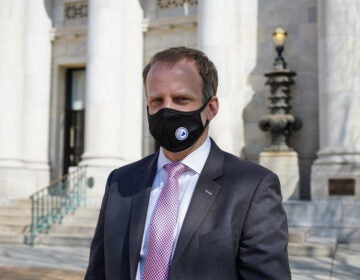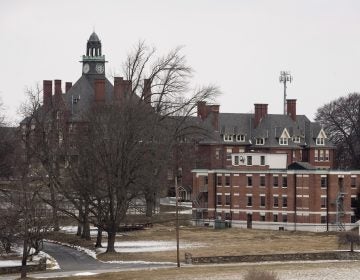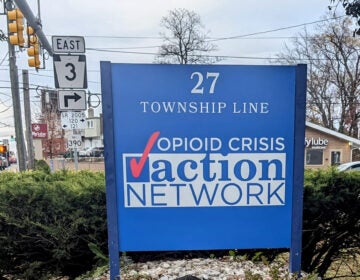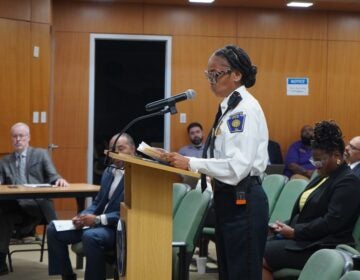Delaware County plans to reestablish a juvenile detention center after previous facility closed due to abuse allegations
The Delaware County Juvenile Detention Center closed in 2021. County officials believe a new building, model, and proper oversight will lead to different results.
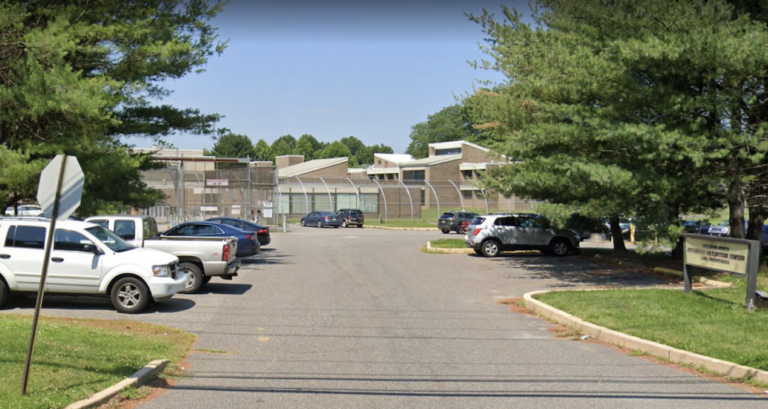
The exterior of Delaware County Juvenile Detention Center. (Google Maps)
Got a question about life in Philly’s suburbs? Our suburban reporters want to hear from you! Ask us a question or send an idea for a story you think we should cover.
Delaware County officials are moving forward with plans to reestablish a juvenile detention center — but not before knocking down the shuttered facility that is still standing.
“The facility is not reopening in its rubble. We will be building a new facility, one that has no similarities to the old model,” Councilmember Kevin Madden said.
Madden said county officials are taking their time to ensure things are done properly. He expects a new facility to open up in 2025 at the earliest.
“The best way to imagine it is more of an academy, a school, a place where youth who have been troubled, who have been traumatized for the most part, we look at them as the still molding brains that they are and give them a chance to break the cycle that they that found themselves in to a point of need for detention,” Madden said.
Care, Not Control, an organization dedicated to youth justice advocacy, criticized Delaware County officials for their plans to reestablish a youth detention center and state officials for greenlighting the resurrection of the Glen Mills Schools under a new name.
“Once again, Delaware County officials prove they are missing the point. Demolishing the former juvenile detention center in Lima to build a new facility will not erase the abuse and trauma that occurred there,” the organization’s leaders said in a written statement. “We call on officials to stop repeating the same mistakes expecting different results. Whether it’s Lima or Glen Mills, Delaware County needs to do better to protect children.”
Facilities like Glen Mills and the juvenile detention center are not safe, Care, Not Control said. The group is one of several calling on the county to find other ways to help juveniles in the criminal justice system.
“We call on officials to invest in holistic, community-based supports and alternatives to locking kids up that have proven more effective. Our children need care, not control,” the statement read.
Madden believes the county’s new model is starkly different from the “old model.” There is an oversight board that did not exist when the DCJDC was still open.
He said the goal is still to give the courts as many alternative options as possible outside of detention. But for the “very few select number of kids,” who end up in a position where pre-trial detention is required, Madden said, there will be a place for them in the new system.
“It’s one that draws a clear line in the sand between the past and how we envision juvenile justice going forward, which is one that’s trauma-informed. It’s rehabilitative in nature and in place of cement and closed walls, it’s glass. It’s bringing the community in to be a part of the rehabilitation of our children,” Madden said.
The Delaware County Juvenile Detention Center in Lima once housed youth ages 10 to 18, but that all changed when allegations of physical, sexual, and psychological abuse began to surface at the facility.
Following notification of wrongdoings by a handful of whistleblowers, the Delaware County Office of the Public Defender conducted its own informal investigation and sent a letter to the Pennsylvania Department of Human Services, sounding the alarm about abuse at the site.
The county president judge ordered the juvenile detention center closed in March 2021. Since then, Delco officials have been sending juvenile offenders to neighboring counties.
Madden said there is a scarcity of residential facilities and beds to house juveniles who get caught up in the criminal justice system. He said children being sent elsewhere means they are farther away from the county’s oversight.
“That’s not ideal. We do want to have kids who the courts decide need to be detained — and I wanted to say that, again, it’s the courts who decide who is detained and who isn’t — but when that occurs, we want to make sure that they’re local, that they’re closer to family and support, and that they’re under our oversight directly,” Madden said.
Prior to its closure, the existing juvenile detention center experienced a steady decline in youth admissions from 2013 to 2021.

Get daily updates from WHYY News!
WHYY is your source for fact-based, in-depth journalism and information. As a nonprofit organization, we rely on financial support from readers like you. Please give today.



